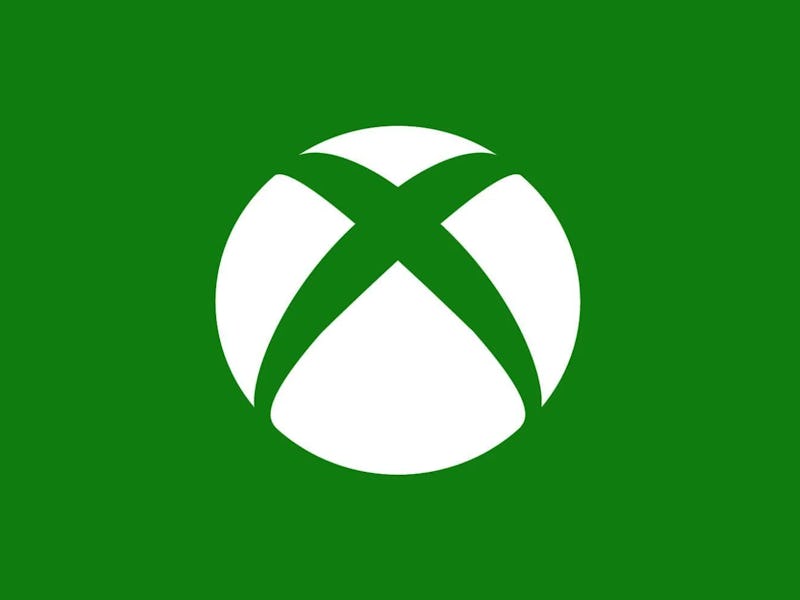The Xbox Game Pass Price Hike Just Gave The FTC More Ammo Against Microsoft
The governing body accused Microsoft of "introducing a degraded product."

Gamers may have been upset by Microsoft increasing the monthly price of Xbox Game Pass while removing the subscription service’s best feature from its more affordable tiers. But it seems none of them were anywhere near as perturbed as the U.S. Federal Trade Commission (FTC). Experts speaking to Inverse are mixed on whether the new price hikes could aid the FTC’s case against Xbox.
In a letter sent to the Ninth Circuit Court Of Appeals agency Thursday, FTC Counsel Imad Abyad gave a stern rebuke of Microsoft altering the deal on Game Pass. The letter specifically calls out the company taking away day one exclusivity from non-Game Pass Ultimate subscribers, naming it a primary example of why the independent agency tried to prevent the nearly $69 billion merger it closed with Activision Blizzard last October.
Earlier this month, Microsoft announced that it would be raising the prices of nearly all Game Pass tiers. Game Pass Ultimate jumped from $17 a month to $20, while the $11 Game Pass For Console tier would be rebranded Game Pass Standard and will now cost $15 a month. The lowest tier, Game Pass Core, will now cost users $75 annually instead of $60.
Last summer, Microsoft’s attorneys successfully argued in favor of its merger with Activision-Blizzard.
The FTC highlighted changes to Game Pass’ middle tier as it now offers less functionality for more money.
“Users of that product must pay 81% more to switch to “Game Pass Ultimate,” the letter reads. “For consumers unwilling to pay 81% more, Microsoft is introducing a degraded product, ‘Game Pass Standard,’ at $14.99/month. This product costs 36% more than Console Game Pass, and withholds day-one releases.”
The FTC’s letter also referenced Microsoft firing more than 1,900 employees this year — including the closure of award-winning game studios it purchased, Tango Gameworks and Arkane Austin — calling the combined actions, “the hallmarks of a firm exercising market power post-merger.”
The FTC used Microsoft’s closure of development studios like Tango Gameworks to bolster its claim that the tech company is too powerful to be held accountable after its Activision-Blizzard merger.
Microsoft can’t seem to get out of the dog house. The company is firmly in third place in terms of sales this generation, behind both Sony and Microsoft. While even Xbox head Phil Spencer has attributed the brand's struggles to the shortcomings of the Xbox One, the recent muddied messaging around first-party exclusivity, the inability to release games at a steady pace, and the decision to release two consoles simultaneously has made regaining market share an uphill battle.
Despite a very strong showing during Summer Games Fest last month, a specter of Microsoft’s own making now hangs over the showcase. Much of the appeal of seeing games like Indiana Jones And The Great Circle, Perfect Dark, and Call Of Duty: Black Ops 6 was knowing Game Pass subscribers could play them day one.
In the case of this year’s upcoming Call of Duty, one of the key concerns raised in the Activision merger, the changes to Game Pass risk ruining the subscription service’s best (and probably last) chance at meaningful growth. Call Of Duty was one of the major points of contention in the FTC’s fight to prevent Microsoft’s purchase of Activision, as the franchise was arguably too big for one console maker to gain.
The tech giant ultimately agreed to keep the series on all consoles, one of many concessions it made to push the merger through. Still, the FTC moved forward in its effort to appeal the court’s decision to approve the merger last December.
The FTC is not a fan of Microsoft’s latest changes to Xbox Game Pass.
In its recent letter, the FTC was sure to mention Microsoft’s promise to not leverage the popularity of the FPS franchise to further solidify its argument.
“Microsoft promised that ‘the acquisition would benefit consumers by making [CoD] available on Microsoft’s Game Pass on the day it is released on console (with no price increase for the service based on the acquisition),’” the letter reads. “Microsoft’s post-merger actions thus vindicate the congressional design of preliminarily halting mergers to fully evaluate their likely competitive effects, and judicial skepticism of promises inconsistent with a firm’s economic incentives.”
Florian Ederer, a professor of Markets, Public Policy & Law at Boston University, says the FTC makes a strong case for why the U.S. Court Of Appeals should overturn the merger. But the protest probably won’t undo the historic deal, especially some nine months after it was closed.
In 2023, the FTC and Microsoft spent months in court over the tech company’s proposal to buy the biggest third-party publisher in North America.
“It's unlikely that the FTC will be ultimately successful in undoing the merger,” Ederer tells Inverse. “But it might still be successful in implementing some post-merger remedies or impose some scrutiny which prevents Microsoft from fully exploiting its increased post-merger market power.”
Lee Hepner, an antitrust lawyer and Senior Legal Counsel for the American Economic Liberties Project, was more optimistic about the FTC’s chances of upending the deal, adding that a decision to “confirm or overturn the lower court's decision could come at any time.”
“FTC's challenge to the Microsoft-Activision merger is on appeal,” Hepner said. “There is no reason why the Ninth Circuit can't take this additional information into consideration as it decides what to do here, and these new facts seem to confirm some of the FTC's concerns that were dismissed by the lower court in this case.”
Microsoft did not immediately respond to requests for comment on the FTC’s letter.
Whatever comes of the case, Xbox will need to use every resource it can to grow Game Pass’ adoption rate. Like many other subscription services in gaming and tech, Game Pass hasn’t seen the substantial growth needed to make it profitable, according to industry analysts.